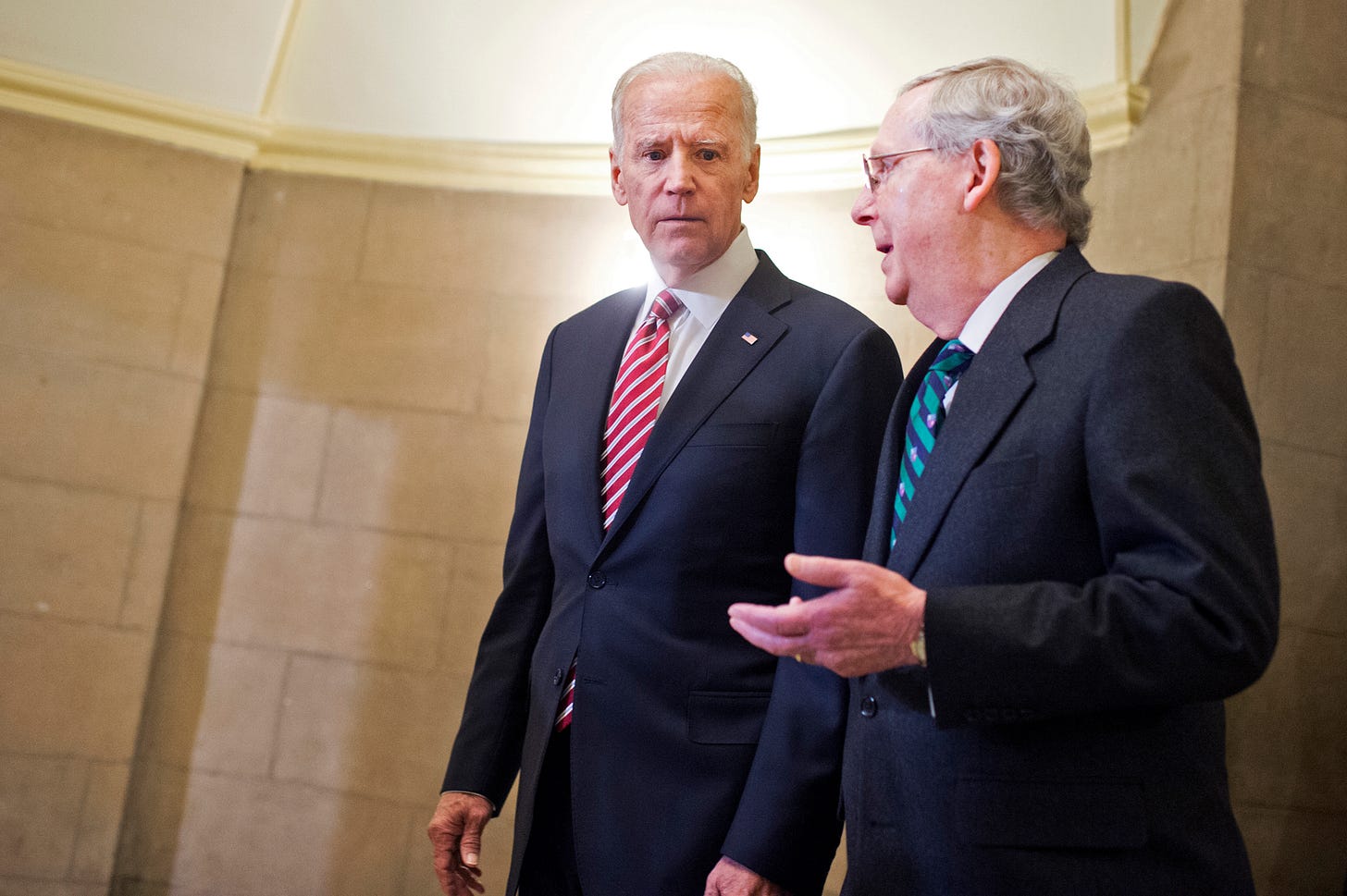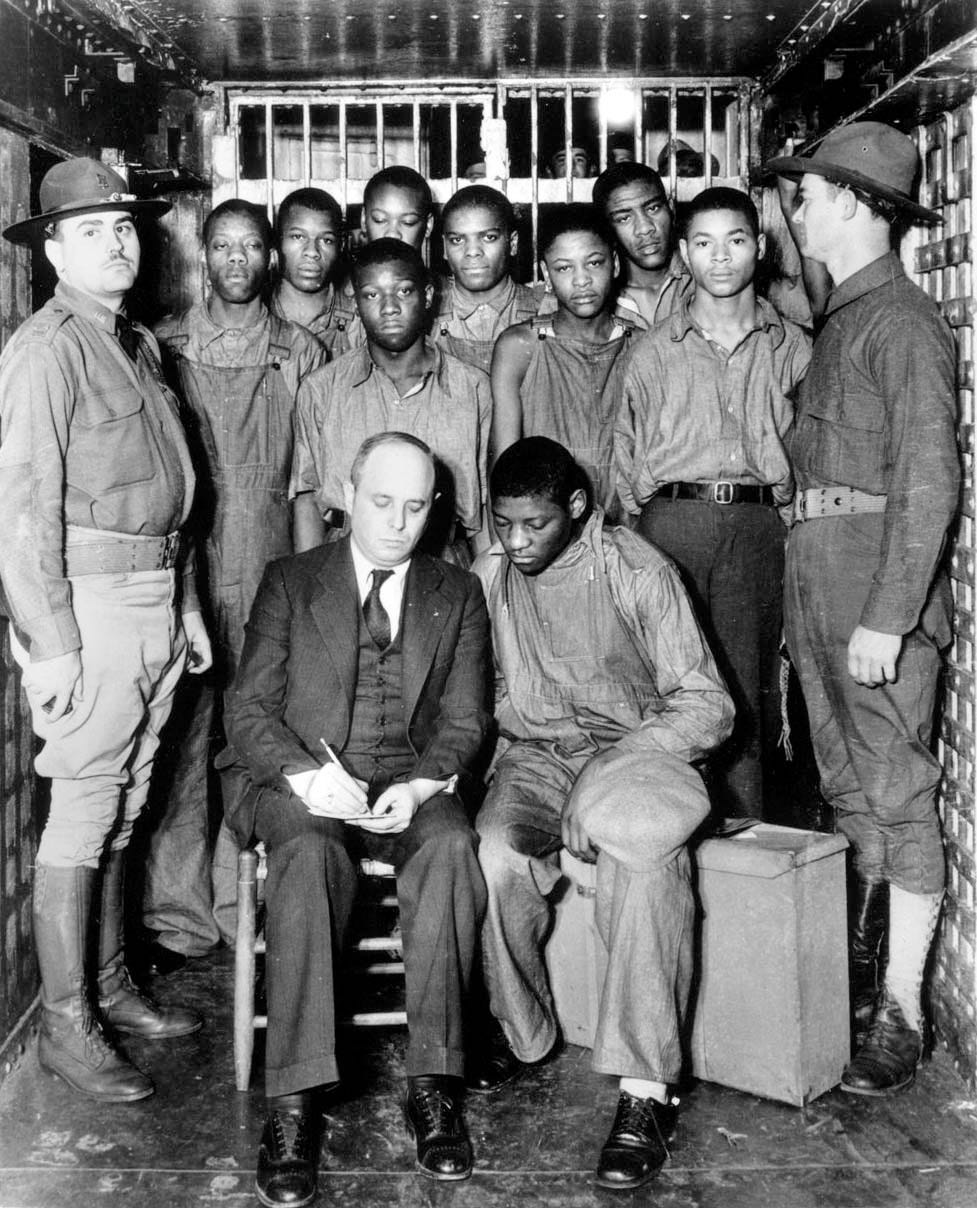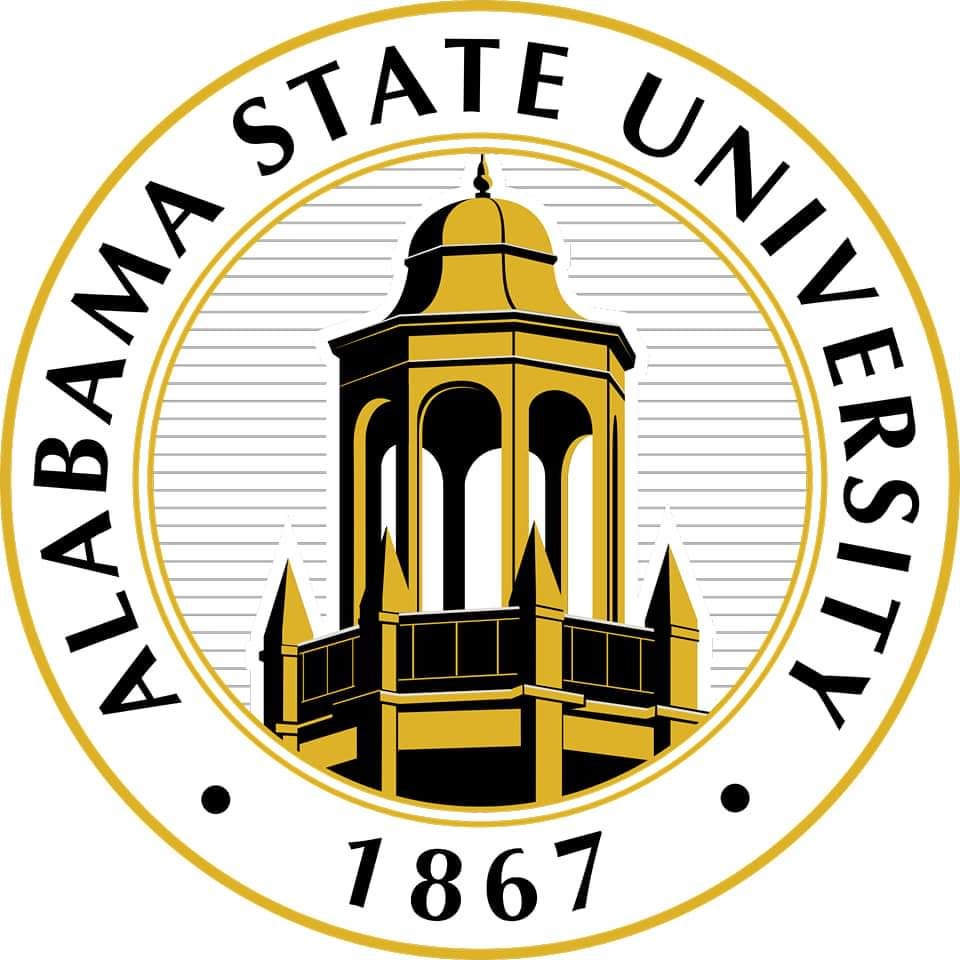One year ago, conservative talk show host Rush Limbaugh passed away at the age of 68. To my surprise that day, I noticed on social media where quite a few Black folks that I knew personally, including several pastors, were "praying for his soul.”
Well, I offered no such prayers, and I wrote the following epitaph to remind the world where I stood on Rush: “My Hobbs and Williams forebears never mourned the deaths of Bull Connor, Orval Faubus, Ross Barnett, or George Wallace—they had a particular habit of not 'praying for' racist demagogues that had caused them and their racial kinsmen misery, woe, and death. Thus, my refusal to praise or pray for Rush Limbaugh, a despicable man who routinely displayed his open and hostile contempt for Black people for over 30 years on his media platforms!"
Lest we forget...
***Earlier this week, the Republican led Arizona State Senate passed legislation that prohibits doctors from aborting a fetus after 15 weeks of pregnancy. Yesterday, Florida followed suit, with the state legislature banning abortions after 15 weeks (and Gov. Ron Desantis already indicating that he will gladly sign the measure into law).
Whenever I read about Republicans or Democrats that are all overly excited about banning abortions, I shake my head because I know that many have either, 1. Caused an unwanted pregnancy that ended with an abortion; 2. had abortions themselves; 3. taken their wives, girlfriends, mistresses, or daughters to abort pregnancies through their private medical providers; the hypocrisy of it all is rich with irony...
Still, with the U.S. Supreme Court set to very likely overturn Roe vs. Wade this spring, Republican led state legislatures are taking up these measures in anticipation of that ruling and the delivery of a victory that social conservatives have clamored for since the early 1980's. If so, most will then convene special legislative sessions to make abortions illegal from the very first, a factor that will impact less wealthy women of all races because as mentioned above, the wealthy will always be able to arrange a private procedure through their medical provider—the same as it always was before Roe was decided in 1974.
*** Realizing that the majority of my readers lean Democratic in their politics, I love being able to bring perspective about what's going on in the Republican Party. As I occasionally mention, there is a schism of sorts within the GOP with Senate Majority Leader Mitch McConnell (R-Ky) on one side, and Donald Trump and his acolytes, like Florida Sen. Rick Scott and Missouri Sen. Josh Hawley, on the other.
Over the past several weeks, as the world has awaited to see whether Russian dictator Vladimir Putin chooses to invade Ukraine, McConnell has heaped praise upon President Joe Biden for listening to his advice that America bolster forces in Eastern Europe, which Biden has done by dispatching 3, 000 soldiers to the region. McConnell has gone even further in asking Biden to equip Ukraine with high tech weaponry to defend itself, a move that would essentially make the U.S. a partner in Ukraine's defense—even if no American soldiers engage in combat.
Juxtaposed to the McConnell position is the Trump wing "America First" caucus, those senators who are either tried and true isolationists that are averse to foreign military engagement of any kind, and others who wish to give Russia carte blanche to do as it wishes in the region under the guise of isolationism. Indeed, this rhetorical war among Republicans will only become more intense should hostilities erupt.
Still, with the Hobbservation Point being on record for predicting that hostilities will not break out in Eastern Europe because Russia is broke, it is quite fascinating to watch this ideological debate among the Republican Party and how it will not only impact their efforts to win back the House and Senate this fall, but their push towards the 2024 presidential race as well.
Black History Hobbservation: The Scottsboro Case
One of the most notorious miscarriages of justice in U.S. legal history took place during a series of trials in Alabama that determined the fate of the Scottsboro Boys, nine young black men who were accused of raping two young white women in March of 1931.
On March 25th of that year, Olen Montgomery (age 17), Clarence Norris (19), Haywood Patterson (18), Ozie Powell (16), Willie Roberson (16), Charlie Weems (16), Eugene Williams (13), and brothers Andy (19) and Roy Wright (12) were all "hoboing," or illegally traveling on a Southern Railway Train between Chattanooga and Memphis, Tennessee. Near Lookout Mountain, Tennessee, a fight broke out between the Black youths and a group of white boys, the latter of whom were kicked off the train. When authorities arrived near Paint Rock, Alabama to "capture every Negro on the train," officers found two young white women, Ruby Bates and Victoria Price, traveling among the aforementioned nine Black boys. Both Bates and Price told authorities that they had been raped, the false testimony that began their legal odyssey.
Ad typical during the Jim Crow era, a lynch mob grew near Scottsboro hoping to dispense vigilante justice, however, Sheriff Matt Wann informed the crowd that he and his deputies would shoot and kill any man that set foot on the jail house steps. As such, the Scottsboro boys were kept safe until trial.
During the initial trial, which ended in convictions and sentences ranging from death to life without parole for each, the group was defended by 69-year old Milo Moody, a white lawyer who had not tried a criminal case in decades, and Stephen Roddy, a real estate lawyer. On appeal, the United States Supreme Court remanded the case (Powell vs. Alabama) on grounds that the defendants were not afforded effective assistance of counsel.
During the second trial, the prosecution purposefully excluded Blacks from the jury, a common practice ever since Blacks had been systematically excluded from the voter rolls per the Alabama Constitution during the early 20th century. To counter the prosecution's assertion that no local Blacks were qualified to serve, Attorney Samuel Leibowitz of New York, one who had been hired by the American Communist Party, called local Black professionals as witnesses to show that they were "intelligent enough" for jury service. One Black professional, John Sanford of Scottsboro, was treated with such disrespect by the prosecutor that Leibowitz angrily warned him to "stand back, take your finger out of his eye, and call him mister." Nevertheless, no Black jurors were allowed to serve during the second trial, one that was marked by the racial and Anti-Semitic tenor of the prosecutor who in closing arguments stated that the jury should disregard the defense and not allow the case to "be bought and sold in Alabama with Jew money from New York."
When the second trial ended in guilty verdicts, the U.S. Supreme Court overturned the convictions (Patterson vs. Alabama and Norris vs. Alabama) arguing that the U.S. Constitution forbade jurors from being excluded on account of race.
A third trial included one Black juror, but the verdict for the defendant Haywood Patterson was guilty. Patterson was sentenced to 75 years in prison as opposed to death. Clarence Norris was later convicted and sentenced to death, however, the state's governor, Bibb Graves, reduced the sentence to life imprisonment. In1946, Norris jumped parole, went into hiding, and was later found in New York 30 years later—but was pardoned, ironically, by former arch segregationist Governor George Wallace.
Defendants Andrew Wright, Charlie Weems and Ozie Powell also were convicted and sentenced to prison, though Powell was shot and rendered a vegetable following an altercation with prison guards in 1936. Charges were later dropped against Scottsboro Boys Willie Roberson, Olen Montgomery, Eugene Williams, and Roy Wright, although the four had already spent six years in custody by the time they were released in 1937.
One of the alleged victims, Ruby Bates, later recanted her entire story of rape and apologized for "all of the trouble" she had caused the Scottsboro Boys.
While most history books carry little information about a case that was an international cause celebre and regularly featured in the New York Times and Time magazine, author Harper Lee intimated that her best-selling classic, To Kill a Mockingbird, was based, in part, upon these events.
Black College Feature
Each day during Black History Month, I will feature one of America's leading HBCUs
Next up: Alabama State University
History: In 1867, nine formerly enslaved Blacks raised $500 to create the Lincoln Normal School in Marion, Alabama.
In December of 1873, the Alabama State Board accepted the transfer of title from the private school after the state legislature passed a measure authorizing the funding of a Normal School. Unlike many of its fellow HBCUs that were initially focused upon industrial and agricultural education, the Lincoln Normal School from the outset was a "teacher's college," and further carries the distinction of being the first state supported institution dedicated solely to the education of Blacks. The University moved from Marion to Montgomery, Alabama in 1887.
In the decades that followed, Lincoln Normal School became a junior college and in 1928, it was designated a four-year baccalaureate degree granting institution. In 1929, the school's name was changed to State Teachers College; subsequent name changes included Alabama State College for Negroes in 1948, Alabama State College in 1954, and in 1969, the final name change to Alabama State University.
In 1954, when Rosa Parks's planned act of civil disobedience led to the Montgomery Bus Boycott, Alabama State University was ground zero as far as activism, as students, faculty, staff and alumni (see below) helped lead one of the first major victories in what would become known as the Civil Rights Movement.
Academics: The 1995 Knight vs. Alabama decree transformed ASU into a comprehensive regional institution, thus leading to two new undergraduate programs, four new graduate programs, diversity scholarship funding and endowment, funding to build a state-of-the art health sciences facility, and a facility renewal allocation to refurbish existing and build new structures.
Currently ranked 31st among HBCUs by US News & World Report, the University offers 47 undergraduate and graduate degrees through its College of Business Administration, College of Education, College of Health Sciences, College of Liberal Arts & Social Sciences, College of Science, Mathematics & Technology, College of Visual & Performing Arts, Division of Aerospace Studies, and College of Continuing Education.
Due to the University offering only one engineering degree program (B.S. in Biomedical Engineering), the university maintains a dual degree engineering program with the University of Alabama at Birmingham.
Alabama State offers the W.E.B. DuBois Honors Program for high achieving undergraduate students, and in 1997, the University won the Honda Campus All-Star Challenge #HCASC (Quiz Bowl) National Championship.
Motto: "Opportunity is Here"
Mascot: Hornets
Colors: Black and Gold
Athletics: Alabama State is a member of the Southwest Athletic Conference (SWAC), an HBCU conference that competes in NCAA Division 1.
Famous Alumni/Figures: Civil Rights legend Rev. Ralph David Abernathy, Civil Rights legend Fred Shuttlesworth, Civil Rights legend and former National Baptist Convention President T.J. Jemison, Civil Rights legend/Lawyer Fred Gray, Civil Rights activist/professor Jo Ann Robinson, Civil Rights activist/Educator Sheyann Webb-Christburg; actress and Dean of the Alabama State University College of Visual and Performing Arts Tonea Stewart, writer/educator Josephine Turpin Washington, writer James Haskins; former Chicago Mayor Eugene Sawyer, former Delta Sigma Theta National President and Al. State Rep. Yvonne Kennedy; Jazz musician Erskine Hawkins, talk show host/comedian Rickey Smiley, R&B recording artist Clarence "Strokin'" Carter, Rap recording artist 2 Chainz, Rap recording artist Lil' Yachty, former NFL star Brad Banks, former NFL star Reggie Barlow, former NFL star Eddie Robinson, former NFL quarterback Tavaris Jackson.
Thank you for subscribing to the Hobbservation Point—have a great day!









Thank you for the information at the Scottsboro case. While I was aware, I learn more every time I read something.
Also, I have to give ASU a shout as my niece will be graduating in May.